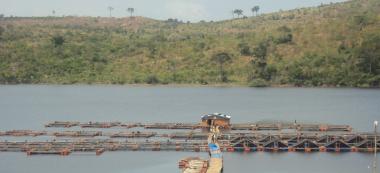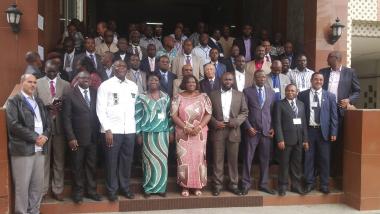AU-IBAR & the East Africa Community are jointly holding a five-day workshop in Naivasha, Kenya from 1-5 November to provide preliminary input on updating the Eastern Africa Regional Dairy Value Chain & to outline a draft framework for a harmonized Regional Dairy Value Chain Development Strategy.
The meeting is being attended by Dr David Balikowa, the Senior Livestock Officer EAC, Directors from the six EAC Member States, Managing Directors and Executive Secretaries Dairy Regulatory Boards from the Six EAC Member States, The Senior Livestock Officer COMESA, Dr Mano, Regional and National Dairy Value Chain Experts, and AU-IBAR staff.
The meeting programme comprises an opening session, presentations by participants on country value chains, approaches and updates, and group work on framework development and strengthening of the integrated regional dairy value chain.
Speaking during the opening session on behalf of AU-IBAR’s Acting Director, Dr Nick Nwankpa, Ms Francisca Gonah gave an overview of the background of the selected regional dairy value chain that was conclusively agreed in 2019 at a Stakeholder Consensus Building Exercise that emanated in stakeholders selecting the regional dairy value chain as the focus of the Live2Africa Project focus in this region. It was further noted that dairy is one of the fastest-growing and most dynamic sectors in the East Africa region, and the region is collectively the leading milk-producing region in Africa.
Dr Yoseph Mano, from COMESA also noted that despite dairy being the largest traded commodity in COMESA, a lot of issues in the region and across the continent require to be addressed for trade purposes. Dr Mano observed that the strategy has come at an opportune time to be utilised by COMESA member countries. He further noted that a key outcome of the meeting should be to pave way for facilitated trade across the region.
Ms Florence Musiime Umurungi from the Rwanda National Dairy Platform also highlighted the importance of private sector engagement in the dairy value chain. She demonstrated the role of the Rwanda National Dairy Platform in promoting dairy value chain issues and highlighted the need for capacity building among actors as a way of strengthening inter-Africa trade.
Dr Christopher Wanga, from the State Department of Livestock, also highlighted the need for the sector to be strengthened via several avenues. Dr Wanga highlighted the need for the industry to expand markets, and advised that the developed strategy should consider aspects such as lower animal feeds; Livestock policies and strategies, which are critical segments to Livestock Master Plans. He further called for one voice among countries in the region to ensure the development of the sector and continue examining ways that best bring resources to industry, ensure products are safe for consumers, and markets.
In welcoming participants at the meeting, Dr David Balikowa, East Africa Community also recognised the strength of the dairy industry. He however stressed the need for an integrated dairy value chain in the region to best realise the East Africa Region’s competitive advantage in milk production and export.
To avoid replication of efforts, and to focus investments, several strategic areas of support were identified for support to the Eastern Africa Regional Dairy Value Chain that followed the Stocktaking Exercise to identify priority actions for the selected regional livestock value chains:
• The first Strategy was to establish an enabling environment for a competitive dairy value chain in the Eastern Africa region;
• The second strategy was to strengthen the capacity of producers, producer organizations and other value chain actors to access input and output markets;
• The third Strategy was to enhance value addition and market access for milk and dairy products in the region.
Under the first Strategy, the key intervention is the formulation of a harmonized regional dairy value chain development strategy, which is one of the aims of the meeting.
Following this workshop, further consultations at the country and regional level with a wider more representative group of stakeholders will be undertaken, and once the drafts are completed a regional validation and an exercise to develop action plans.
The meeting is being implemented under the Pan-African Support to the AU-IBAR for a Sustainable Development of Livestock for Livelihoods in Africa (Live2Africa). Live2Africa Project is a European Union-funded project and one of the first initiatives of AU-IBAR towards the implementation of the continental aspects of the twenty-year Livestock Development Strategy for Africa. The Live2Africa Project takes cognizance of the immense livelihood contribution and business opportunities that the livestock sector presents with the high and rising demand for animal-source foods, low per capita consumption against globally recommended standards, and the deficit in supply on the continent that is largely met by importation.
Read Speech – Acting Director, AU-IBAR
Sign-up to collaborate with other stakeholders in the East Africa Dairy Sector
and Livestock development initiatives

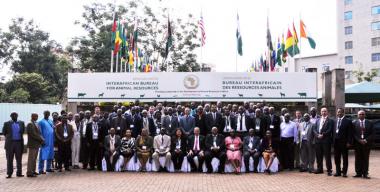
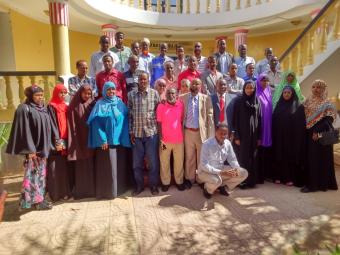
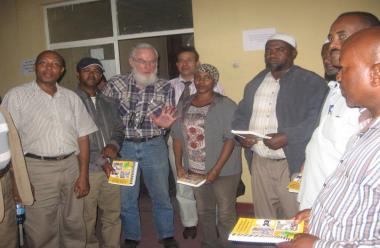
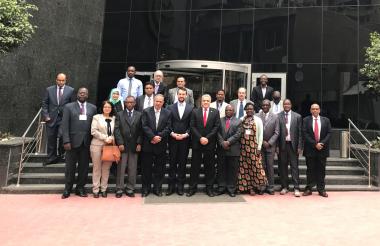
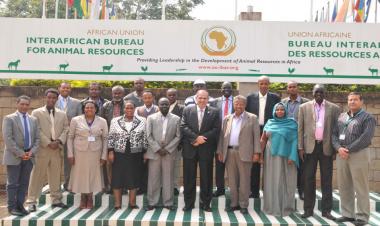
![[© 2014 AU-IBAR. Participants attending a training programme in Surveillance and Epidemiology of Trade-Related Transboundary Animal Diseases being Offered by the University of Nairobi, Faculty of Veterinary Medicine.] © 2014 AU-IBAR. Participants attending a training programme in Surveillance and Epidemiology of Trade-Related Transboundary Animal Diseases being Offered by the University of Nairobi, Faculty of Veterinary Medicine](/sites/default/files/styles/normal_size/public/2020-09/57.jpg?itok=k2u2EVX0)
